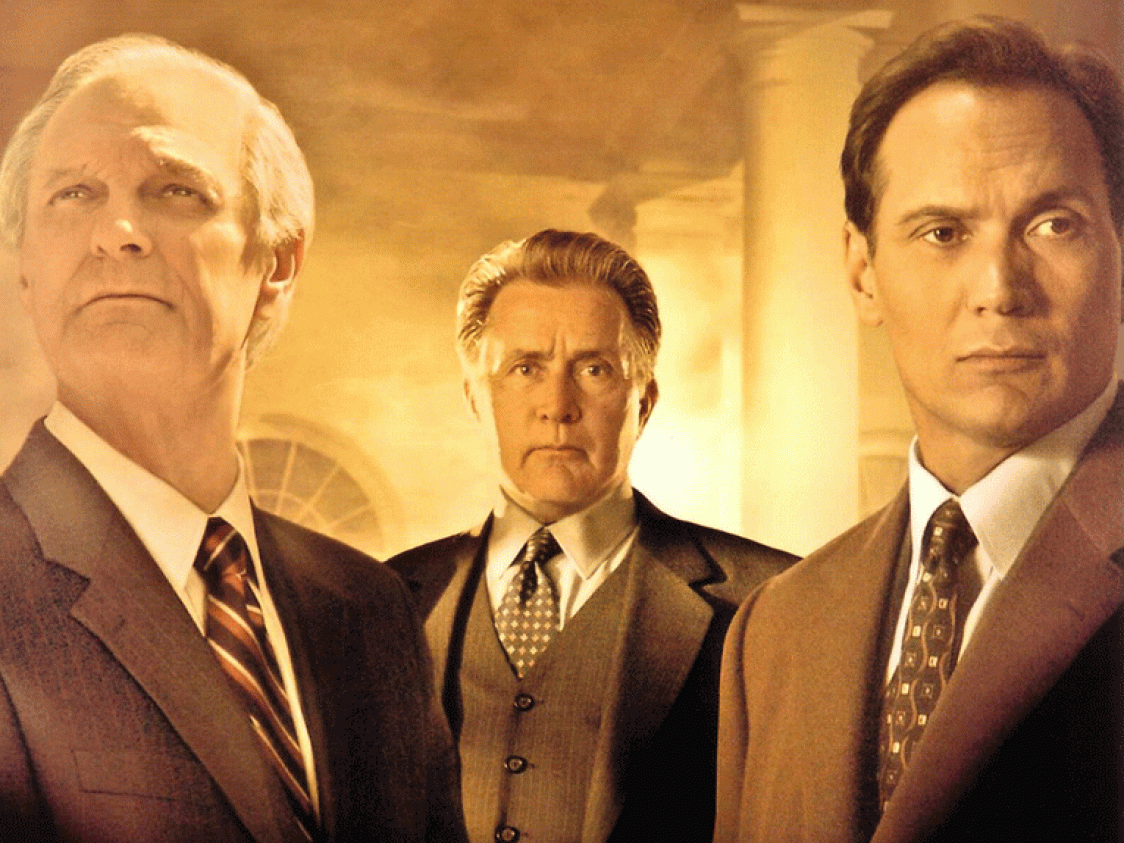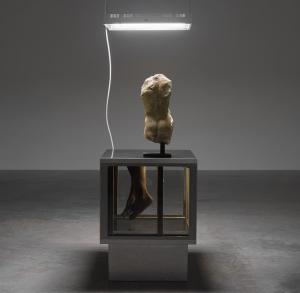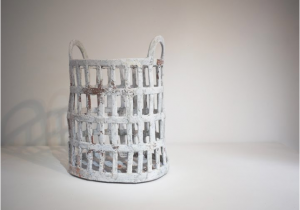THE WEST WING - GENIUS OR ABSURDISM?
By NICK BRYAN
The West Wing, the hugely successful drama series from the states about the inner workings of the White House, has always operated at the higher end of television drama. As one of the lead characters once declared, the show at its height aimed at nothing less than to “raise the level of debate in this country”..
By maintaining a delicate balance between drama and comedy, cynical realism and hopeless optimism, the show was never evasive about its desire to attract an audience who were willing to think as they watched, to accept that in the world of politics there is not always a black and white answer, and not every day will have a happy ending, but enough of them do to make it worth getting up in the morning.
That said, The West Wing has been accused more than once of being a ridiculously naïve view of Washington politics. The men and women who inhabit the real life west wing, even the most ardent fan is forced to admit, would probably not be as fundamentally decent, high-minded and devoted to their duty as every single one of the main characters in this fictional counterpart seem to be. Josiah Bartlet, the President in this tangential reality, is persuaded to run by his best friend and closest advisor, to prove wrong those who say that “a good man can’t be elected President”.
Those who love the programme are not claiming to be in it for the realistic view of American politics, however. Indeed, the series has been slow to take off in the United Kingdom, acquiring a smaller cult following simply because of general apathy towards the idea of a series about White House politics, and the show does often communicate itself through a haze of political jargon, which takes serious time to adapt to. What it does have, however, that precious few television serials can claim to have, is a genuine style entirely of its own, from the very first shot of the very first episode: a lengthy, continuous tracking shot through the entire White House set, starting on the bronze Seal embedded in the lobby floor and following the Chief of Staff as he goes through the west wing to his own desk, with a brief tantalising glimpse of the Oval Office.
This shot wasn’t just an impressive opening, it had, as series mastermind and writer Aaron Sorkin put it in his introduction to the first Official Script Book, “written the series in director’s language”. From now on, the lengthy, unbroken sequences of members of staff pacing through corridors would become as much part of The West Wing as any character.
The other hallmark of the series is the rapid-fire dialogue. It may require your full attention to understand it all, some people even watch it with subtitles, but the level of political jargon is only ever a delaying tactic. Everything is explained, indeed, the use of an obscure or difficult word with immediate explanation is often not intended to talk down to the audience, but to build to a dramatic reveal of its meaning, which can paint a whole episode in a new light. The dialogue also revels in a certain level of wit. The banter between staff members in The West Wing is often more amusing than most comedies, but without the distraction of canned laughter.
Despite seeming at first glance to be an extremely serious and self-important drama, whole parts of the show’s episodes can often be given over to minor storylines, which are told with tongue very much in cheek. One member of staff, for example, spent a whole episode trying to find an excuse not to eliminate the penny from circulation. Other storyline launch headlong into comic absurdity. In one episode, while President Bartlet engages in high-stakes war games with China, two lower ranking staffers play an escalating string of practical jokes on each other, ending with one of them sawing the leg off their opponent’s desk. The carefully played balancing act of the more serious or poignant moments with the considerably less serious ones is a huge part of what makes the series work, along with the writers knowing when to ease back on the comedy and allow the drama to be played completely straight.
One of the reasons why West Wing has been able to maintain such a consistent and appealing style across dozens of episodes is that it has, certainly, a singularity of vision found in few of its competitors. For the first four years, series creator Aaron Sorkin did not just oversee other writers, he wrote or co-wrote every single script. Thus, from week to week, the story may twist and turn, but the high-speed humour and character interaction stays consistent. Sorkin has worked on other projects, such as the sadly short-lived Sports Night, set behind the scenes at a TV sports show. Although the topic may be very different, the warmth, humour and rounded vision that permeates The West Wing can be seen clearly.
Sorkin’s fast-paced dialogue, often seen as his trademark, is actually far more than a group of quips. He talks passionately in The West Wig Official Companion about his feelings that “words, when spoken for the sake of performance, are music”. His words have sound and rhythm, every single utterance of ‘yeah’ or ‘and’ is a beat in the bar which, if removed, could ruin the flow of it. It sounds absurd when he speaks about it, but Sorkin is on form, and you can see it in his work. As the show went on and the actors settled into his style, their delivery of these lines became more and more pitch-perfect.
Of course, with such heavy involvement by one writer, the product cannot help but be extremely representative of his views. Aaron Sorkin, very much a liberal, wrote a White House controlled by the left-wing Democratic party, and the show has been accused of strong left-leanings. Those who agree with the lead characters’ politics think of it as a perfected fantasy, but Richard Schiff, who plays Toby Ziegler, Communications Director, has a different view. In the Official Companion, he muses that it’s odd when “people call us the ideal White House and not the idealistic White House. We’re pretty lame as a group in terms of what we accomplish.” Sorkin’s vision does indeed seem to be not an exploration of how amazing it would be if a group of left wing altruists got into power, but more a question of asking what would happen in such a situation.
Of course, although the series’ success owes a lot to Sorkin’s contribution, it also dwells on the artistry of other significant individuals, such as Thomas Schlamme, executive producer and director of many episodes, who could be safely credited with the unique visual style. The cast deserve their share of the credit, too, many of them being relative unknowns from theatrical backgrounds. Martin Sheen, famous not least for Apocalypse Now, plays President Bartlet, and Rob Lowe was known for some film work, but the others were fairly obscure prior to The West Wing. Sorkin is always keen to continue working with actors with whom he has a prior working relationship; hence Bradley Whitford, who came to play Josh Lyman after working on the writer’s original stage version of A Few Good Men, which has ironically just started a run in London, starring Rob Lowe. Janel Moloney, Lyman’s assistant Donna, worked on Sports Night briefly, and so did Joshua Malina, before he joined The West Wing in its fourth year as Will Bailey, and as Rob Lowe’s replacement.
Lowe’s quitting was seen by many as the beginning of a troubled period for the series. He left early in the fourth year over pay disputes and annoyance that his character, Sam Seaborn, had been pitched to him as one of the leads, only to find himself playing second fiddle to other characters, primarily Martin Sheen’s Josiah Bartlet, who had originally been planned to take a much lesser role than he eventually did. This alone was not a complete body blow for the series, but the departure of Aaron Sorkin at the end of that same year most definitely was.
In all honesty, however, there had been trouble in paradise long before that. When The West Wing began, Clinton was in power and its left wing ideals were much more in sync with the direction of the country. By the beginning of its third year, things had changed. First, there was the installation of Republican President Bush, followed by the terrorist attacks of September 11th 2001. Sorkin’s warm, comfortable White House began to seem less and less relevant in the face of a global threat of terror. The writer could see this just as clearly as any critic, and chose to tackle the issue head on, with a standalone episode called Isaac and Ishmael. This episode was written and filmed in a matter of weeks and pushed the debut episode of the new season back a week, ignoring the show’s dense ongoing storylines, and was, as Sorkin put it his introduction to that episode’s teleplay (in the second script book),“terrorism’s crowded out all other topics”.
The special episode, however, was not the success it might have been. It was widely perceived as preachy and simplistic in the face of such horrors, and, if anything, only made more forcefully the point that The West Wing ran a real risk of seeming irrelevant in the modern climate. The subsequent two years, before Sorkin’s departure, did see more of an emphasis on plots involving terrorism and military issues, culminating in the season-four cliffhanger where the President’s daughter was kidnapped by forces unknown.
The writer, however, did not get to resolve the story, as he departed before the next season began. Since The West Wing changed from being the product of a singular vision to that of a committee of writers, like most other shows, there has been an undeniable shift in tone. Many fans would also remark that a shift in quality has also been apparent, and not for the better. Certainly, there has been a movement away from comedy. Funny lines are still scattered throughout the show, but the more brutally absurd moments are much less commonplace than they were during the Sorkin years. The writers seem to lean more towards deadly serious political drama, and find the balancing of this with over-the-top comedy without either one seeming out of place a challenge. The style of the show, however, remains intact, and it is still a source of superior and intelligent drama.
It seems more and more inevitable that The West Wing will come to an end at the climax of its seventh year, with the end of the Bartlet Presidency. Although there is a certain appeal in seeing it try to carry on with a new lead, the success of the series has been very much a case of catching lightning in a bottle, with the right actors and creative individuals in the right place at the right time, and perhaps it should be allowed to go out on a high. After all, we will always have our DVDs.





